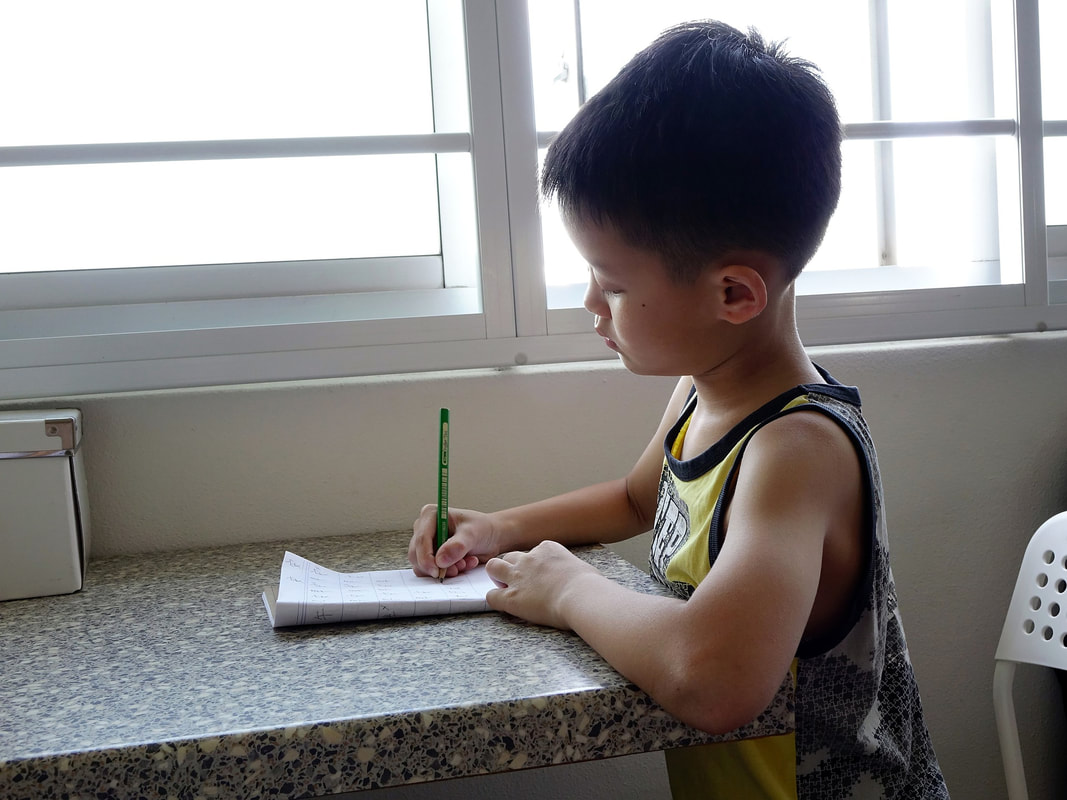 Homework. Yes, it has begun. The goal of many parents is to get it done without nagging, complaining or arguing. How do you do that? What is the secret? I want my child to be organized, stay focused and learn from past homework mistakes. My answer is to develop a plan together. Involve your child in the goal setting instead of dictating to them what they need to do. This fosters their independence and participation, and critical thinking skills. So here are 5 strategies for a successful homework session and scripts on how to say it to your child. 1) Introduce the plan. “Last year we struggled getting homework done, I was yelling at you, and you would get upset at me and it was really hard. Let’s figure out how to be organized so we make doing homework easier.” They will be more open to hearing what you have to say. 2) Location. Have a spot they can keep all their papers, backpack, and even shoes. Maybe there is a corner on the counter that all the papers go. Also using a folder to keep homework in helps. “Where should we put your backpack, and papers when you come home from school?” and “What will you do when your done with homework?” No more scrambling to get out the door in the morning and homework still sitting in the printer, not packed. 3) Homework routine. Where will they study? The kitchen? Their bedroom? “Last year we had a hard time doing homework at home, let’s try going to the library after school and doing it there.” “Which spot in the house do you think would be the best to get the most work done?” “It usually works when you do homework after a snack, what do you think?” Then say, “Okay we can try this but if it doesn’t work we need to talk about what will.” 4). Embrace fidgeting. It can be really hard for many kids to sit still and do homework especially after a long day at school. “I notice when you do homework you move around a lot, lets come up with some ways you can move and still get your work done.” Kids who need to move can do homework standing up, chewing gum, holding a small fidget ball, sitting on an exercise ball or listening to soft music. If you can help them come up with a productive way to fidget it will help them focus. 5). Original plans evolve over time. Check in and discuss what is working and what is not working. “It has been really successful when you do your homework in your room with music, but I noticed that you’re not doing it at the time we picked and then its dinner and you’re not done.” Don’t wait and see what happens after the first marking period. Help your child be able to solve problems independently. If the first plan didn’t work that’s okay. Don’t toss in the towel and hope for better luck next time. Sit down and help your child plan for what they need.
12 Comments
10/9/2017 12:29:09 pm
This is so helpful! I'm going to share this with parents of my child clients and my community of parents.
Reply
Rose LaPiere, LPC, RPT-S, ACS
10/11/2017 09:41:51 pm
Glad you can use it!
Reply
2/3/2019 12:26:41 pm
my kids have always hated homework but thanks for these tips
Reply
10/11/2017 10:19:14 am
Excellent article on constructing a collaborative plan with a child to turn homework into a clear, structured routine!
Reply
Rose LaPiere, LPC, RPT-S, ACS
10/11/2017 09:42:18 pm
Thank you
Reply
7/25/2018 04:58:02 am
I Love this article!!! Amazing.
Reply
Rose LaPiere, LPC, RPT-S, ACS
7/25/2018 07:23:00 am
Thank you
Reply
9/6/2018 02:26:31 am
Homework increases the students confidence level and boost mind also.
Reply
1/3/2019 06:00:53 am
This was a really nice article, Thank you for sharing.
Reply
1/7/2019 09:18:48 am
According to all of these homework strategies, the course material must be completed on time so that all of kids may prepare for the best homework methods.
Reply
2/1/2019 09:07:31 am
The tips are on point but my kids really hate homework but will try and apply these tips and see what will happen
Reply
Your comment will be posted after it is approved.
Leave a Reply. |
AuthorROSE LAPIERE, LPC, RPT-S, ACS Archives
March 2020
Categories |

 RSS Feed
RSS Feed